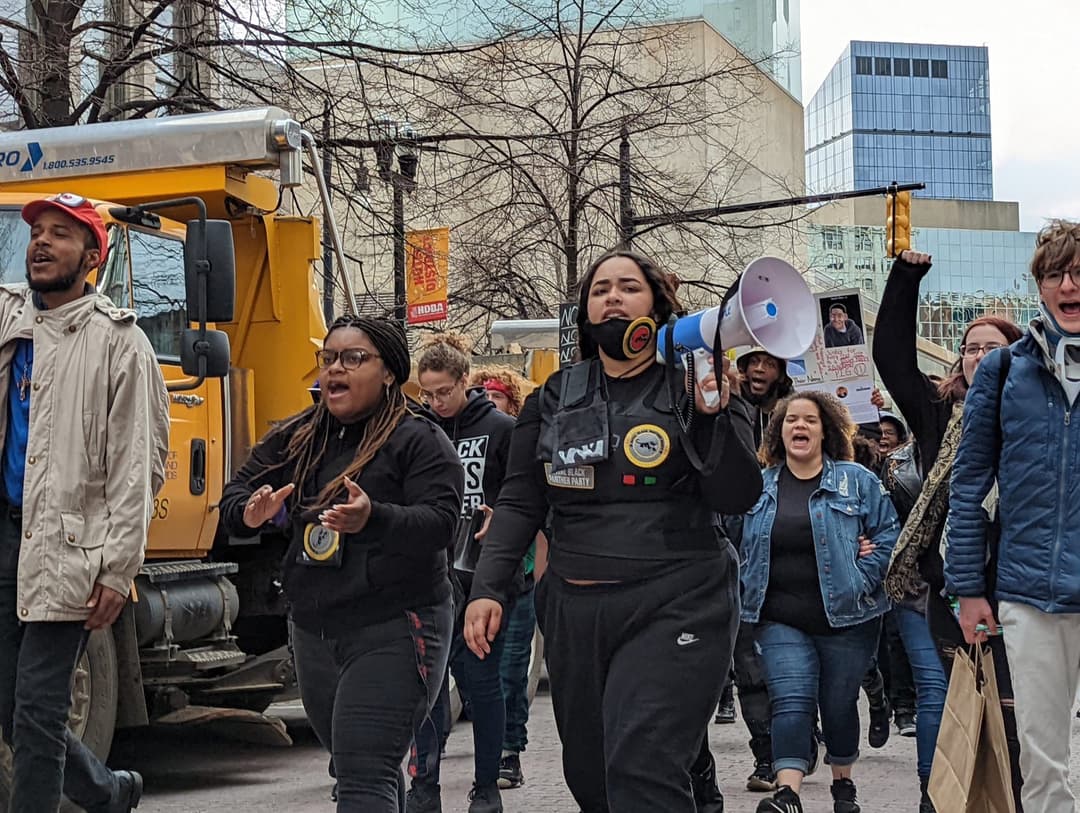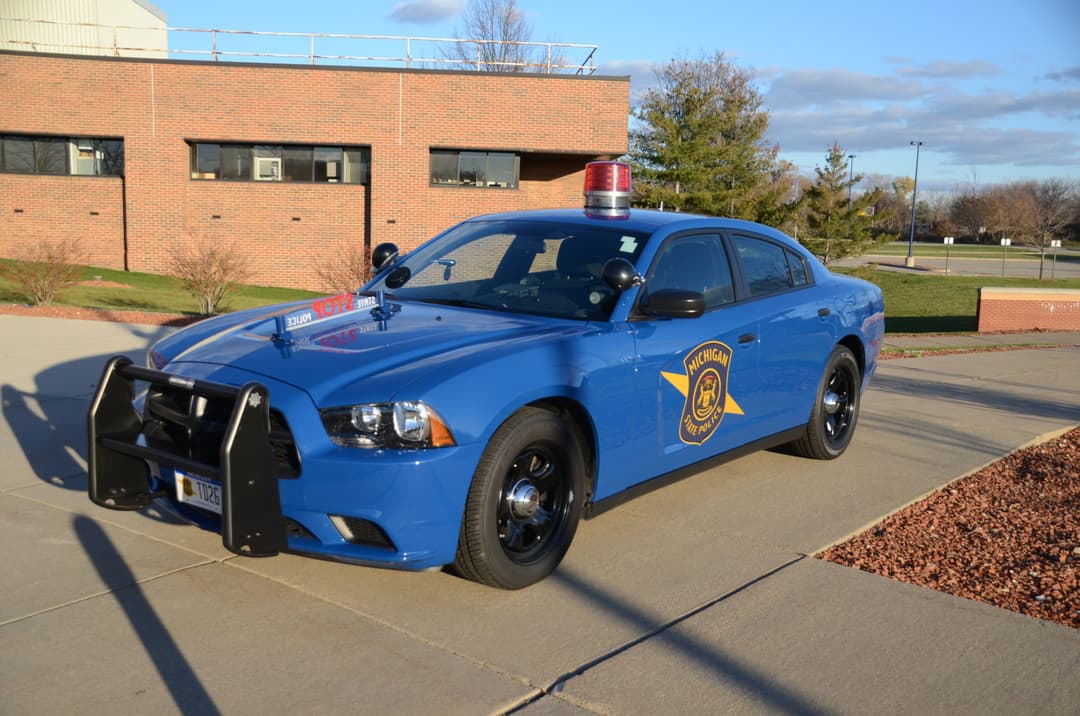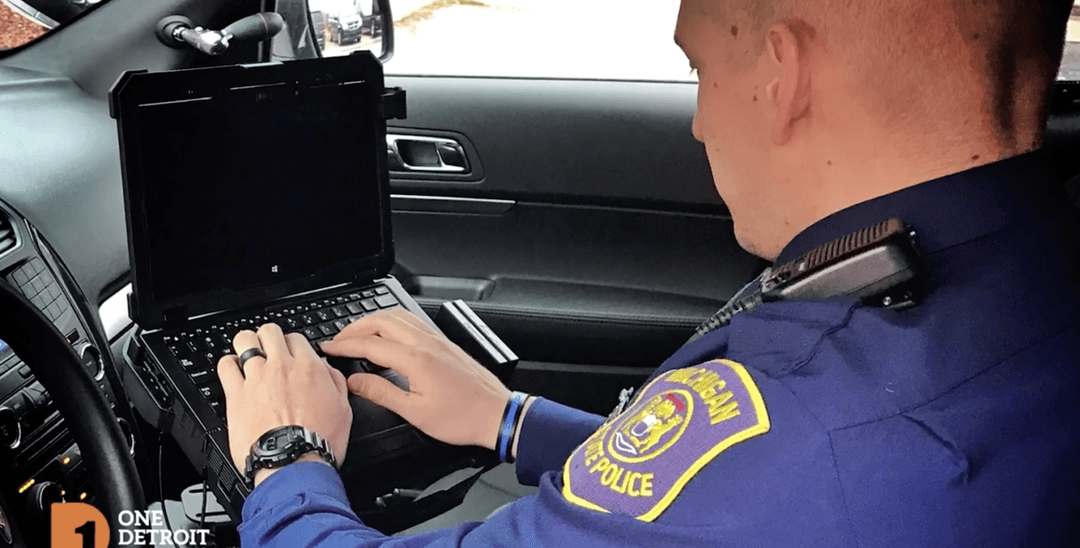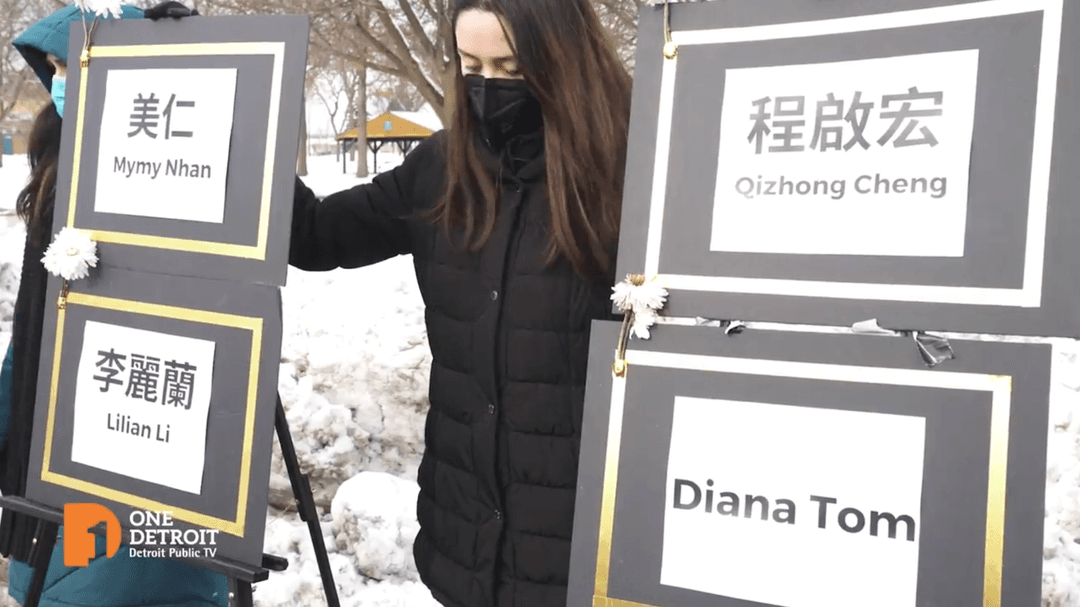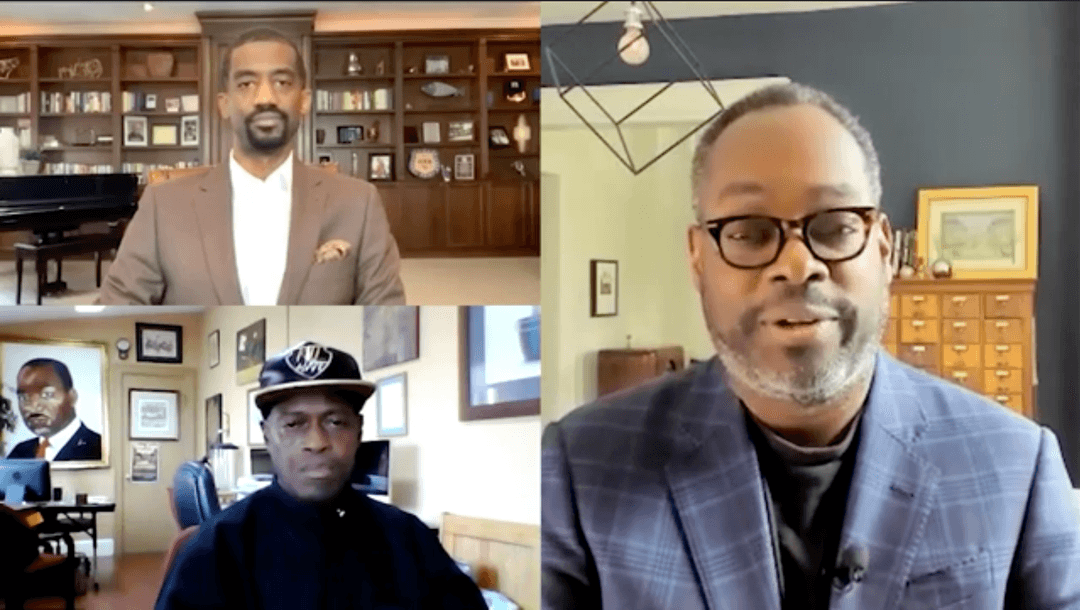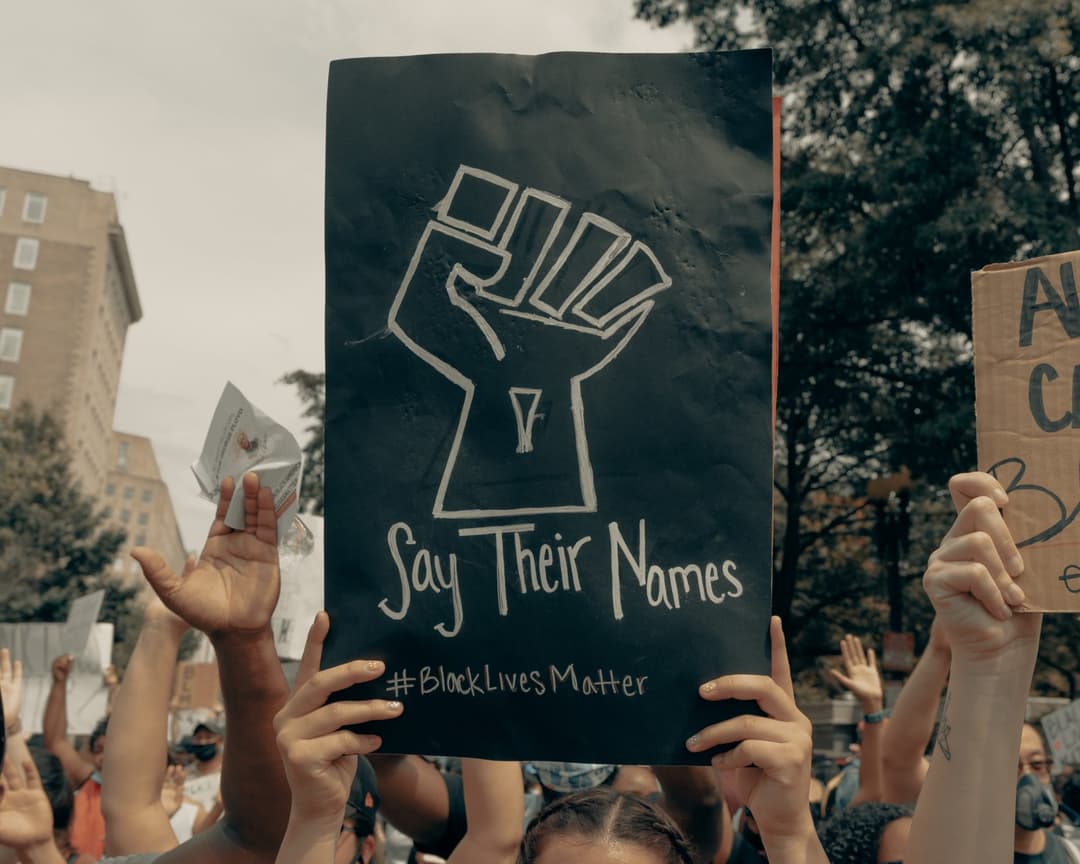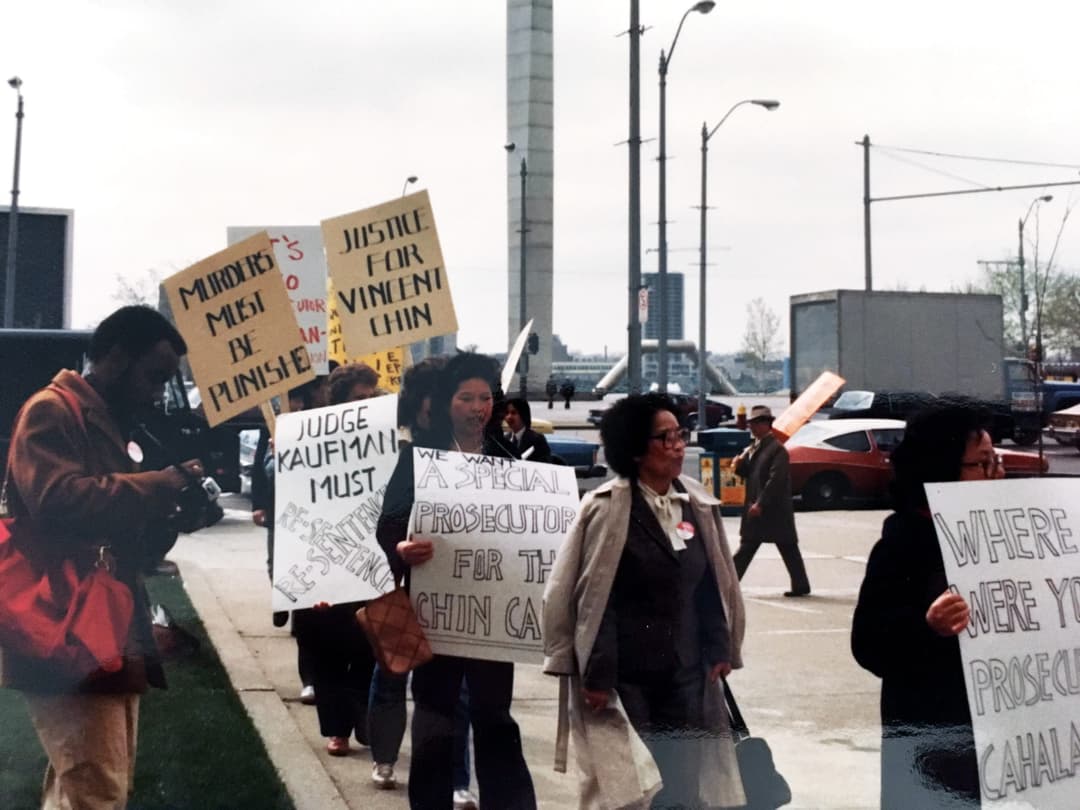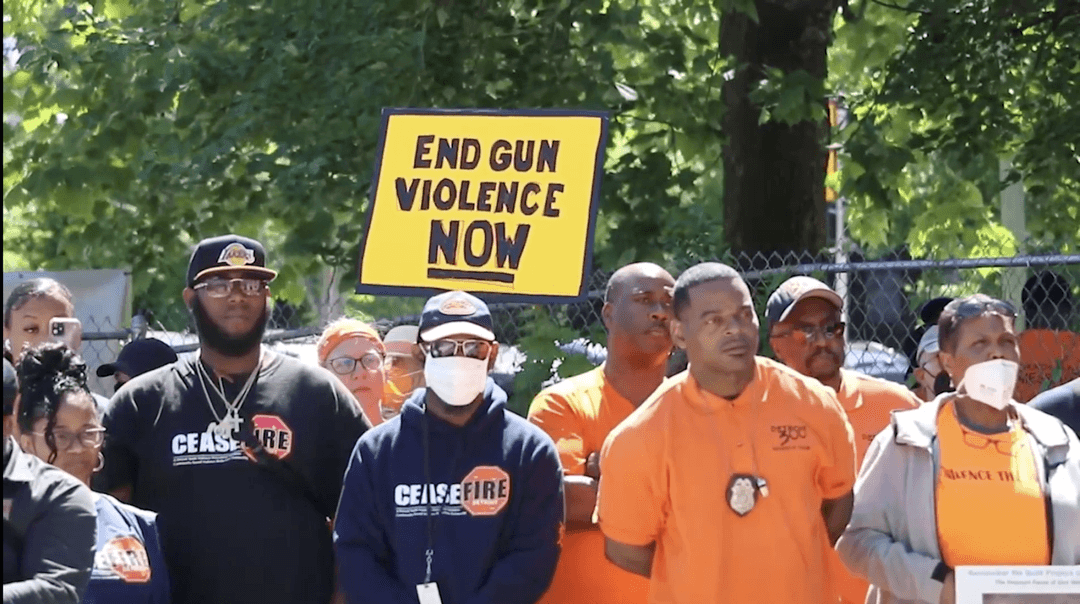Family, community call for action in Patrick Lyoya case as Michigan State Police investigation continues
Apr 21, 2022
The April 4 fatal shooting of Patrick Lyoya, a 26-year-old African Immigrant, by an unnamed white Grand Rapids police officer once again reignited calls for police reform and justice last week as another Black person was killed during an interaction with law enforcement. While marches and rallies fill the streets of Grand Rapids, Lyoya’s parents are demanding justice and the name of the officer responsible for taking their son’s life.

As Michigan State Police continues its independent investigation, One Detroit’s Will Glover catches up with BridgeDetroit reporter Bryce Huffman, who’s been on the ground in Grand Rapids reporting on the city’s reaction to the incident, for an update on where the case stands. Huffman, who previously covered the Grand Rapids Police Department, shares his thoughts on the tragic shooting of Patrick Lyoya and the previous racial issues the police department has dealt with.
Full Transcript:
Will Glover: Bring us up to speed on what has happened with the police shooting and where we are today.
Bryce Huffman, Reporter, BridgeDetroit: Yeah. So on April 4th, which was about two weeks ago, yesterday in the morning, Patrick Lyoya, a 26-year-old Congolese immigrant in Grand Rapids, was driving his car in the southeast side of the city in the Boston Square neighborhood. He was stopped by a police officer.
Bryce Huffman: He gets out of the car to talk to the officer. That’s something that is pretty normal in several African countries. He didn’t think anything of it. The cop obviously did. A struggle ensued. By the end of the struggle, the officer shot Patrick in the back of the head, killing him. According to the independent autopsy that they released today nearly instantly.
Will Glover: In the Congo, I believe is where he’s from, the Republic of Congo.
Bryce Huffman: Yeah.
Will Glover: Right. So there it’s normal to if you’re stopped by the police or approached by a police officer to walk up to them to see what they want, what the problem is. Correct. And is that kind of how this whole scenario got started, that misunderstanding?
Bryce Huffman: Yeah. So like we said, Patrick is from the Democratic Republic of Congo. And there, if you’re stopped by the police, it’s customary to get out of your car and talk to the police officer. You know, person to person outside of both cars and then figure out what to do next.
Bryce Huffman: Here obviously, that is not the case in America. Many of us grew up black, you know, had our parents tell us, you know, two hands on the steering wheel, make sure your license and registration are out. Don’t reach for anything. You know, those are conversations that we had growing up that Patrick and many other immigrants did not.
Speaker 3: In a bid to be. Oh yeah.
Speaker 4 Translator: I am PETA lawyer.
Speaker 3: By bike Patrick Ahluwalia.
Speaker 4 Translator: I am the father of Patrick Lyoya. I didn’t know. I didn’t believe that in this country.
Speaker 3: Come up because, you know, since.
Speaker 4 Translator: There is a jealousy, you just got.
Speaker 3: To go on a tour.
Speaker 4 Translator: I didn’t know.
Speaker 3: It’s quite a drama about why you cheat.
Speaker 4 Translator: I didn’t know that in America.
Speaker 3: When I was a poor Essex. You’re about to have more.
Speaker 4 Translator: It can be an execution-style to kill someone.
Speaker 3: Or not.
Speaker 4 Translator: To kill someone with a gun.
Speaker 3: They’re not. Why? We’re not a scary policeman, cowboy.
Speaker 4 Translator: And to be killed by the police officer.
Speaker 3: I am here.
Speaker 4 Translator: On my wish now.
Speaker 3: Can I draw and come up with people that I don’t know about? Napoli said.
Speaker 4 Translator: I knew that if you met with the police officer in America.
Speaker 3: What about me? Is simple myself.
Speaker 4 Translator: You will be safe. You’ll know your life is you spare.
Speaker 3: I like change. Opportunity, Lisa. So, Conor.
Speaker 4 Translator: What is making me cry? More to see my son.
Speaker 3: Wow. I can be a NASCAR policeman.
Speaker 4 Translator: He has been killed by a police officer.
Speaker 3: While of course, noble Sandra.
Speaker 4 Translator: What a small, small mistake for what.
Will Glover: What has been the reaction in Grand Rapids since this has come to light?
Bryce Huffman: Yeah, the reaction from a lot of people, activists, residents, even some city officials is just a terrible sadness, a terrible regret. This didn’t need to happen. People on the streets are, you know, marching and trying to hold the police department accountable. People kind of at the city government level are wishing they had maybe taken some of these concerns about their police department even more seriously over the past five years.
Bryce Huffman: And then on the police side, they’re not really talking to media other than their public information officer or their chief. Everyone else is kind of just trying to keep their heads down and let people peacefully protest. And that’s what we’ve been seeing so far back in the summer of 2020, after the George Floyd protests.
Bryce Huffman: Grand Rapids was one of the cities that did see some property destruction and some violence occur at their protest. But so far, following Lyoya’s unfortunate death, his family has asked everyone to be peaceful because that’s kind of the person that Patrick was. He wasn’t a violent guy.
Will Glover: What has been the relationship or I guess the status of the Grand Rapids Police Department over the years? Because it seems like there have been instances that people that created concern in black and brown residents. And it seems like this is kind of the result of those grievances being, you know, falling on deaf ears.
Bryce Huffman: Yeah. So I think I want to clarify two things. I’m only going to go back five years because that is really my introduction to the Grand Rapids Police. You know, that’s when I moved there and started covering them. And the second thing I want to make clear is these complaints actually haven’t fallen on deaf ears.
Bryce Huffman: The police department itself, after there was an incident in March of 2017 where they pulled over five unarmed young black boys and held them at gunpoint after they were coming out of a community center. And that was really the first story I ever really knew about the Grand Rapids Police. So when I got there, I knew this was in the backdrop. This was in everyone’s mind. There was also a traffic stop study that was done or I think it was released the next month that showed black drivers are twice as likely to get pulled over in Grand Rapids as white drivers.
Bryce Huffman: So when I got there, there was already this momentum that had built up of people saying, hey, Grand Rapids police, we need to change how we operate, or the worse could come. And unfortunately, Patrick’s death is kind of emblematic of the fact that even though the department had been going to some lengths to change, those changes simply weren’t enough.
Will Glover: So what happens next? We know that there’s been an autopsy done. They haven’t released the name of the officer who was involved in this. Where do we go from here?
Bryce Huffman: So next steps are Michigan State Police are still doing their investigation. I would expect that people are probably still going to be in the streets protesting and demanding accountability, still demanding the name of the officer who probably won’t be named until after Michigan State Police conclude their investigation.
Bryce Huffman: And after that, either from the county level or the state level, I would expect to see charges filed against the officer, but there’s not quite a timetable on when those charges would be announced yet because Michigan State Police are still doing their investigation.
Stay Connected:
Subscribe to One Detroit’s YouTube Channel & Don’t miss One Detroit Mondays and Thursdays at 7:30 p.m. on Detroit PBS, WTVS-Channel 56.
Catch the daily conversations on our website, Facebook, Twitter @DPTVOneDetroit, and Instagram @One.Detroit
View Past Episodes >
Watch One Detroit every Monday and Thursday at 7:30 p.m. ET on Detroit Public TV on Detroit Public TV, WTVS-Channel 56.
Stay Connected
Subscribe to One Detroit’s YouTube Channel and don’t miss One Detroit on Thursdays at 7:30 p.m. and Sundays at 9 a.m. on Detroit PBS, WTVS-Channel 56.
Catch the daily conversations on our website, Facebook, Twitter @OneDetroit_PBS, and Instagram @One.Detroit
Related Posts
Leave a Reply
Your email address will not be published. Required fields are marked*





